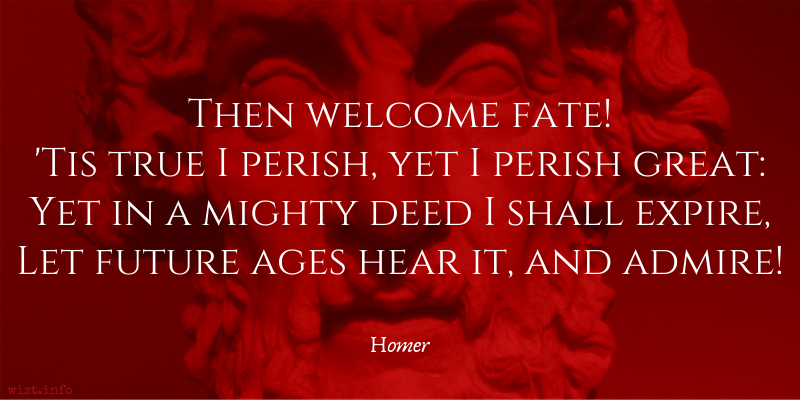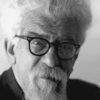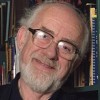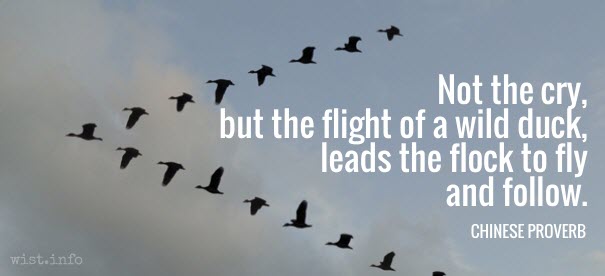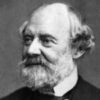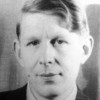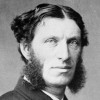When a noble deed is done, who is likely to appreciate it? They who are noble themselves.
Henry David Thoreau (1817-1862) American philosopher and writer
Speech (1860-07-04), “The Last Days of John Brown,” North Elba, Massachusetts
(Source)
Collected in A Yankee in Canada (1866).
Quotations about:
deed
Note not all quotations have been tagged, so Search may find additional quotes on this topic.
ORESTES: I’ll go. I’ll start to do this dreadful thing, this horror. Yes, I will. If it’s the gods’ will, I’ll do it. But I take no joy in it.
[ὈΡΈΣΤΗΣ: ἔσειμι: δεινοῦ δ᾽ ἄρχομαι προβλήματος
καὶ δεινὰ δράσω γε — εἰ θεοῖς δοκεῖ τάδε,
ἔστω: πικρὸν δὲ χἡδὺ τἀγώνισμά μοι.]Euripides (485?-406? BC) Greek tragic dramatist
Electra [Ἠλέκτρα], l. 985ff (c. 420 BC) [tr. Wilson (2016)]
(Source)
Orestes going to kill his mother, Clytemnestra, who was, along with the already-killed Aegisthus, the murderer of his father, Agamemnon.
Interestingly, earlier translations have him characterize the task as both bitter and sweet; later ones only speak of its bitterness.
(Source (Greek)). Alternate translations:I go in.
Tho' I am entering on a deed that's fraught
With horror, I will execute the deed;
Thus let it be, if thus the righteous Gods
Ordain: altho' this conflict to my soul
At the same time be bitter, and yet sweet.
[tr. Wodhull (1809)]I will go in; it is a dreadful task I am beginning and I will do dreadful things. If the gods approve, let it be; to me the contest is bitter and also sweet.
[tr. Coleridge (1891)]I will enter in; but I am beginning a dreadful attempt. Ay, and I shall do dreadful things; but if this seems fit to the Gods, let it be; but the contest is for me [at once] bitter and sweet.
[tr. Buckley (1892)]I will go in. A horror I essay!
Yea, horrors will achieve! If this please Heaven,
So be it. Bitter strife, yet sweet, for me.
[tr. Way (1896)]Aye. So be it. -- I have ta'en
A path of many terrors: and shall do
Deeds horrible. 'Tis God will have it so. ...
Is this the joy of battle, or wild woe?
[tr. Murray (1905)]I will go in; 'tis an awful task I undertake; an awful deed I have to do; still if it is Heaven's will, be it so; I loathe and yet I love the enterprise.
[tr. Coleridge (1938 ed.)]Fine. I am going inside. Terrible the deed I shall begin and frightening the deeds I shall accomplish. If this is liked by the gods then so be it. My battle is bitter, not sweet.
[tr. Theodoridis (2006)]I’ll go in.
I’m on the verge of a horrendous act,
something truly dreadful. Well, so be it,
if gods approve of this. And yet, for me
the contest is not sweet at all, but bitter.
[tr. Johnston (2009)]
The road must be trod, but it will be very hard. And neither strength nor wisdom will carry us far upon it. This quest may be attempted by the weak with as much hope as the strong. Yet such is oft the course of deeds that move the wheels of the world: small hands do them because they must, while the eyes of the great are elsewhere.
J.R.R. Tolkien (1892-1973) English writer, fabulist, philologist, academic [John Ronald Reuel Tolkien]
The Lord of the Rings, Vol. 1: The Fellowship of the Ring, Book 2, ch. 2 “The Council of Elrond” [Elrond] (1954)
(Source)
Possibly the origin of the spurious "Even the smallest person can change the course of the future." This is said by Galadriel, but only in the film version, The Fellowship of the Ring (2001), screenplay by Fran Wash and Philippa Boyens.
More discussion: Not a Tolkien quote: "Even the smallest person can change the course of the future." - thetolkienist.com.
Boasts are wind and deeds are hard.
Isaac Asimov (1920-1992) Russian-American author, polymath, biochemist
Foundation and Empire, ch. 22 (1952)
(Source)
Then welcome fate!
‘Tis true I perish, yet I perish great:
Yet in a mighty deed I shall expire,
Let future ages hear it, and admire![νῦν αὖτέ με μοῖρα κιχάνει.
μὴ μὰν ἀσπουδί γε καὶ ἀκλειῶς ἀπολοίμην,
ἀλλὰ μέγα ῥέξας τι καὶ ἐσσομένοισι πυθέσθαι.]Homer (fl. 7th-8th C. BC) Greek author
The Iliad [Ἰλιάς], Book 22, l. 303ff (22.303) [Hector] (c. 750 BC) [tr. Pope (1715-20), l. 385ff]
(Source)
Original Greek. Alternate translations:But Fate now conquers; I am hers; and yet not she shall share
In my renown; that life is left to every noble spirit,
And that some great deed shall beget that all lives shall inherit.
[tr. Chapman (1611), l. 266ff]But I will not fall
Inglorious; I will act some great exploit
That shall be celebrated ages hence.
[tr. Cowper (1791), l. 347ff]Fate overtakes me. Nevertheless I will not perish cowardly and ingloriously at least, but having done some great deed to be heard of even by posterity.
[tr. Buckley (1860)]My fate hath found me now.
Yet not without a struggle let me die,
Nor all inglorious; but let some great act,
Which future days may hear of, mark my fall.
[tr. Derby (1864)]Now my fate hath found me. At least let me not die without a struggle or ingloriously, but in some great deed of arms whereof men yet to be born shall hear.
[tr. Leaf/Lang/Myers (1891)]My doom has come upon me; let me not then die ingloriously and without a struggle, but let me first do some great thing that shall be told among men hereafter.
[tr. Butler (1898)]Now again is my doom come upon me. Nay, but not without a struggle let me die, neither ingloriously, but in the working of some great deed for the hearing of men that are yet to be.
[tr. Murray (1924)]But now my death is upon me. Let me at least not die without a struggle, inglorious, but do some big thing first, that men to come shall know of it.
[tr. Lattimore (1951)]Now the appointed time's upon me. Still, I would not die without delivering a stroke, or die ingloriously, but in some action memorable to men in days to come.
[tr. Fitzgerald (1974)]So now I meet my doom. Well let me die --
but not without struggle, not without glory, no,
in some great clash of arms that even men to come
will hear of down the years!
[tr. Fagles (1990), l. 359ff]But now has my doom overcome me. But let me at least not die without making a fight, without glory, but a great deed having done for the men of the future to hear of.
[tr. Merrill (2007)]May I not die without a fight and without glory
but after doing something big for men to come to learn about.
[tr. @Sentantiq (2011)]
He’s suffering from Politicians’ Logic. Something must be done, this is something, therefore we must do it.
Perfect valour is to behave, without witnesses, as one would act were all the world watching.
[La parfaite valeur est de faire sans témoins ce qu’on serait capable de faire devant tout le monde.]
François VI, duc de La Rochefoucauld (1613-1680) French epigrammatist, memoirist, noble
Réflexions ou sentences et maximes morales [Reflections; or Sentences and Moral Maxims], ¶216 (1665-1678) [tr. FitzGibbon (1957)]
(Source)
(Appeared in the 1st (1665) ed. as the similar:[La pure valeur, s’il y en avoit, seroit de faire sans témoins ce qu’on est capable de faire devant le monde.]
(Source (French)). Other translations:Pure Valour, if there were any such thing, would consist in the doing of that without witnesses, which it were able to do, if all the world were to be spectators thereof.
[tr. Davies (1669), ¶117]True Valour would do all that, when alone, that it could do, if all the World were by.
[tr. Stanhope (1694), ¶217]Perfect valour consists in doing without witnesses all we should be capable of doing before the whole world.
[pub. Donaldson (1783), ¶431; ed. Lepoittevin-Lacroix (1797), ¶207; ed. Carvill (1835), ¶367]Perfect valor is to do unwitnessed what we should be capable of doing before all the world.
[ed. Gowens (1851), ¶225]Perfect valour is to do without witnesses what one would do before all the world.
[tr. Bund/Friswell (1871), ¶216]Perfect valor accomplishes without witnesses what anyone could do before the eyes of the world.
[tr. Heard (1917), ¶221]Perfect courage consists in doing unobserved what we could do in the eyes of the world.
[tr. Stevens (1939), ¶216]Perfect courage means doing unwitnessed what we would be capable of with the world looking on.
[tr. Kronenberger (1959), ¶216]Perfect valor consists in doing without witnesses what one would be capable of doing before the world at large.
[tr. Tancock (1959), ¶216]Perfect bravery is being able to do without witnesses what one would be able to do in front of everyone.
[tr. Siniscalchi (c. 1994)]Perfect courage is to do without witnesses what one would do before all the world.
[tr. Whichello (2016) ¶216]Perfect courage is to do without witnesses what one would be capable of doing with the world looking on.
[Source]
It’s no great Commendation to just forbear doing Ill: thou art bound moreover to do Good to others; if thou dost not, thou art not Good to thy self.
Thomas Fuller (1654-1734) English physician, preacher, aphorist, writer
Introductio ad Prudentiam, Vol. 1, # 716 (1725)
(Source)
Not the cry, but the flight of a wild duck, leads the flock to fly and follow.
Proverbs, Sayings, and Adages
Chinese proverb
First recorded by Jean Paul [Johann Paul Friedrich Richter] (1763-1825), Levana, sec. 8 (1807): "Nicht das Geschrei, sagt ein chinesischer Autor, sondern der Ausflug einer wilden Ente treibt die Heerde zur Folge und zum Nachfliegen." (See H. A., A Book of Thoughts (1865))
You should show the least vanity about your greatest gifts. Content yourself with doing: leave saying to others.
[Afecte menos sus mayores eminencias. Conténtese con hacer, y deje para otros el decir.]
Baltasar Gracián y Morales (1601-1658) Spanish Jesuit priest, writer, philosopher
The Art of Worldly Wisdom [Oráculo Manual y Arte de Prudencia], § 295 (1647) [tr. Maurer (1992)]
(Source)
(Source (Spanish)). Alternate translations:Shew as little as thou canst thy most eminent qualities. Rest satisfied to doe, and leave it to others to talk of it.
[Flesher ed. (1685)]The greater your exploits the less you need affect them: content yourself with doing, leave the talking to others.
[tr. Jacobs (1892)]Real achievement needs no such affectation. Rest in accomplishment, and leave talk to others. Do, and do not brag.
[tr. Fischer (1937)]Make the least ado about your greatest gifts. Be content to act, and leave the talking to others.
[Source]
Sow an act, and you reap a habit. Sow a habit, and you reap a character. Sow a character, and you reap a destiny.
Charles Reade (1814-1884) English novelist and dramatist
(Attributed)
Attributed in Notes and Queries, 9th series, vol. 12 (7 Nov 1903). Not found in any of his works, but attributed to many other authors over time. See here for more discussion.
It is when the sentimentalist turns preacher of morals that we investigate his character, and are justified in so doing. He may express as many and as delicate shades of feeling as he likes, — for this the sensibility of his organization perfectly fits him, no other person could do it so well, — but the moment he undertakes to establish his feeling as a rule of conduct, we ask at once how far are his own life and deed in accordance with what he preaches? For every man feels instinctively that all the beautiful sentiments in the world weigh less than a single lovely action; and that while tenderness of feeling and susceptibility to generous emotions are accidents of temperament, goodness is an achievement of the will and a quality of the life. Fine words, says our homely old proverb, butter no parsnips; and if the question be how to render those vegetables palatable, an ounce of butter would be worth more than all the orations of Cicero. The only conclusive evidence of a man’s sincerity is that he give himself for a principle. Words, money, all things else, are comparatively easy to give away; but when a man makes a gift of his daily life and practice, it is plain that the truth, whatever it may be, has taken possession of him.
James Russell Lowell (1819-1891) American diplomat, essayist, poet
“Rousseau And The Sentimentalists,” North American Review (Jul 1867)
(Source)
Can anything be sadder than work left unfinished? Yes: work never begun.
Christina Rossetti (1830-1894) English poet
Time Flies: A Reading Diary, “January 5” (1886)
(Source)
Let us think the unthinkable, let us do the undoable, let us prepare to grapple with the ineffable itself, and see if we may not eff it after all.
Douglas Adams (1952-2001) English author, humorist, screenwriter
Dirk Gently No. 1, Dirk Gently’s Holistic Detective Agency, ch. 20 [Dirk] (1987)
(Source)
An able man shows his Spirit by gentle words and resolute actions.
A man does not sin by commission only, but often by omission.
[Ἀδικεῖ πολλάκις ὁ μὴ ποιῶν τι, οὐ μόνον ὁ ποιῶν τι.]
Marcus Aurelius (AD 121-180) Roman emperor (161-180), Stoic philosopher
Meditations [To Himself; Τὰ εἰς ἑαυτόν], Book 9, ch. 5 (9.5) (AD 161-180) [tr. Staniforth (1964)]
(Source)
(Source (Greek)). Alternate translations:Not he only that committeth, but he also that omitteth something, is oftentimes unjust.
[tr. Casaubon (1634), 9.4]Omissions no less than Commissions, are oftentimes Branches of Injustice.
[tr. Collier (1701)]Men are often unjust by omissions, as well as by actions.
[tr. Hutcheson/Moor (1742)]A man is as often guilty of injustice by omitting to do what he ought, as by doing what he ought not to do.
[tr. Graves (1792), 9.4]He often acts unjustly who does not do a certain thing; not only he who does a certain thing.
[tr. Long (1862)]Omissions no less than commission are oftentimes part of injustice.
[tr. Collier/Zimmern (1887)]Wrong comes often of not doing as well as doing.
[tr. Rendall (1898)]Men are often unjust by omissions as well as by actions.
[tr. Hutcheson/Chrystal (1902)]There is often an injustice of omission as well as of commission.
[tr. Haines (Loeb) (1916)]Often he who omits an act does injustice, not only he who commits an act.
[tr. Farquharson (1944)]A person often acts unjustly by what he fails to do, and not only by what he does.
[tr. Hard (1997 ed., 2011 ed.)]And you can also commit injustice by doing nothing.
[tr. Hays (2003)]There can often be wrongs of omission as well as commission.
[tr. Hammond (2006)]Very often an unjust act is done by not doing something, not only by doing something.
[tr. Needleman/Piazza (2008)]One may often injure by omission, not only by action.
[ed. Taplin (2016)]
Do one thing every day that scares you.
Mary Schmich (b. 1953) American newspaper columnist
“Advice, Like Youth, Probably Just Wasted on the Young,” Chicago Tribune (1997-07-01)
(Source)
Often attributed to Eleanor Roosevelt, but no reference found in her works or contemporaneous sources (though see this Eleanor quote). Also attributed to Kurt Vonnegut and to Baz Luhrmann (who used the words in a song but credited them to Schmich).Related predecessors can be found in other quotations (Emerson (1841), Jane Addams (1880), Mark Toby), linked back to this one below. For more discussion about this quotation, see Do One Thing Every Day That Scares You – Quote Investigator®.
We do not what we ought,
What we ought not, we do,
And lean upon the thought
That chance will bring us through;
But our own acts, for good or ill, are mightier powers.Matthew Arnold (1822-1888) English poet and critic
Empedocles on Etna, Act 1, sc. 2, ll. 238-242 (1852)
(Source)
A good deed is the best prayer. A loving life is the best religion.





